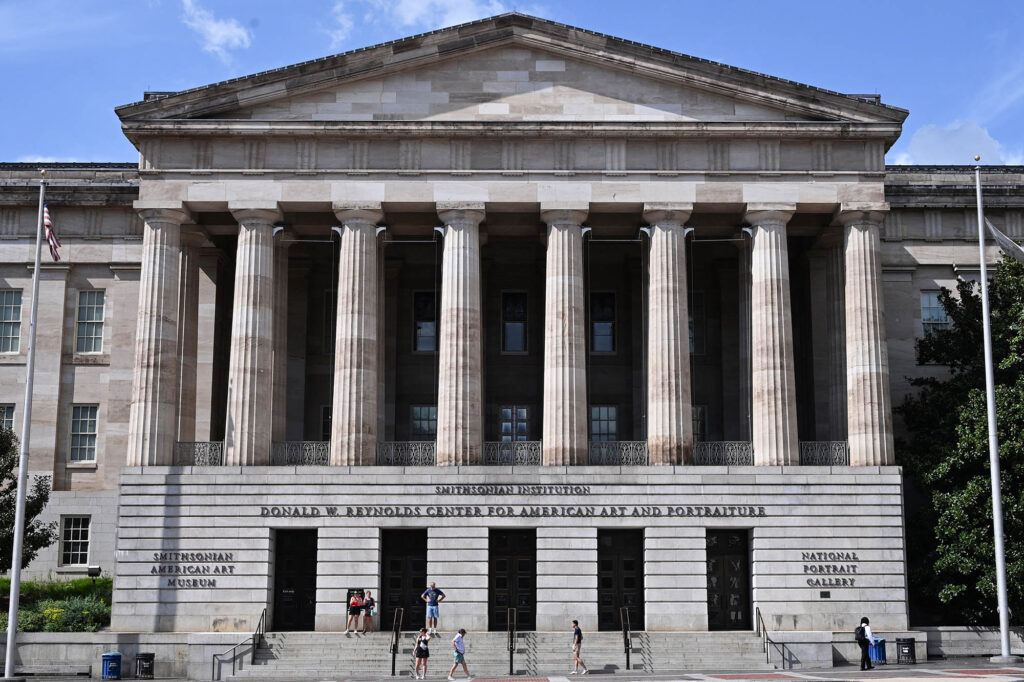🔴 Website 👉 https://u-s-news.com/
Telegram 👉 https://t.me/usnewscom_channel
Growing up in the DC suburbs in the ’90s, my family often hit the museums of the Smithsonian Institution.
I got to know their exhibits as if they were part of my own neighborhood, cheerfully bouncing from wing to wing, knowing exactly where the coolest stuff was.
I distinctly remember being proud of all the things America had done, gleefully identifying artifacts and displays that correlated with what I was learning in school.
These museums were temples of American greatness.
They told a story of discovery, ingenuity, beauty and grit.
But today, a visit to the Smithsonian will give you the distinct impression that the United States is less a land of innovation and courage than a hellscape of oppression and crimes against humanity.
For the past few decades, the leaders of these museums have been busily rewriting exhibits to dwell on America’s sins while muffling her greatest triumphs.
President Donald Trump is absolutely right to call this out.
His new push to examine the museums and peel back the layers of anti-American sentiment that have seeped into their publicly funded exhibits is long overdue.
Take the National Museum of American History: Once a place to marvel at Franklin’s kite or the Star-Spangled Banner, it now greets visitors with Pride flags and panels about systemic oppression.
Ben Franklin’s scientific genius is framed not as a marvel of American intellect, but as tainted because he owned slaves.
The “Entertainment Nation” exhibit paints Mickey Mouse as a legacy of blackface and the Lone Ranger as a metaphor for US imperialism.
Then there’s the National Museum of Natural History. I remember it as a celebration of American scientists who mapped the cosmos and conquered disease.
Now, it’s impossible to miss the overture of climate crisis panic.
The guilt-trip of man-made climate change is found repeatedly, giving today’s kids a sense of culpability and worry to take home along with their pricey gift shop swag.
Seeing the founding documents at the National Archives has always been one of my greatest joys.
Today, it feels a bit like going through the TSA line at the airport, complete with security guards yelling to keep it moving.
On a visit with friends this year, the staff members in the rotunda repeatedly shouted that you didn’t need to bother seeing everything in the room.
Outside the rotunda, you’ll see repeated themes of American sins in the aftermath of the founding, including women and minorities being denied the right to vote.
True, these are important moments in history; we can learn much from them.
What’s missing, however, is the triumph of Americans who fought for those rights and won.
The problem isn’t limited to the history museums.
The Smithsonian American Art Museum now features an exhibit declaring that sculpture has been a “powerful tool in promoting scientific racism.”
Another, “The Shape of Power,” instructs visitors that race is just a social construct used to establish “systems of power and privilege.”
How is that a celebration of American art?
It’s grievance politics dressed up in marble.
This is not scholarship.
It’s indoctrination.
It suggests America is uniquely racist and violent, as if no other nation ever had slavery or inequality.
It frames every achievement through the lens of oppression, every innovation as tainted and every success with an asterisk.
Of course, every part of American history should be taught and displayed, warts and all.
But these museums aren’t highlighting growth; they are pushing our historical black marks as the primary message.
Children and tourists should leave the museums with an understanding of how far we’ve come and how America truly stands out as the freest and most progressive nation in the world, one that prides itself on equal opportunity, fairness and the rule of law.
Instead, they’ve browbeaten us about America’s ugliness, greed and shameful legacy, themes that appeal to the elite.
How can we celebrate the progress and achievement of so many outstanding and selfless American men and women of all races through the past 250 years if our main message is that the United States is broken beyond repair?
Trump is not suggesting censorship or twisting historical facts that are difficult to cope with.
He merely wants a review to point out what loyal visitors like me already know: These institutions have been systematically making our darkest moments in history the only ones that matter.
The next generation should get to know the real America through the Smithsonian’s impressive collections.
Let’s spare them from the politics.
Ellie Bufkin is deputy director of communications at the Foundation for Defense of Democracies.
